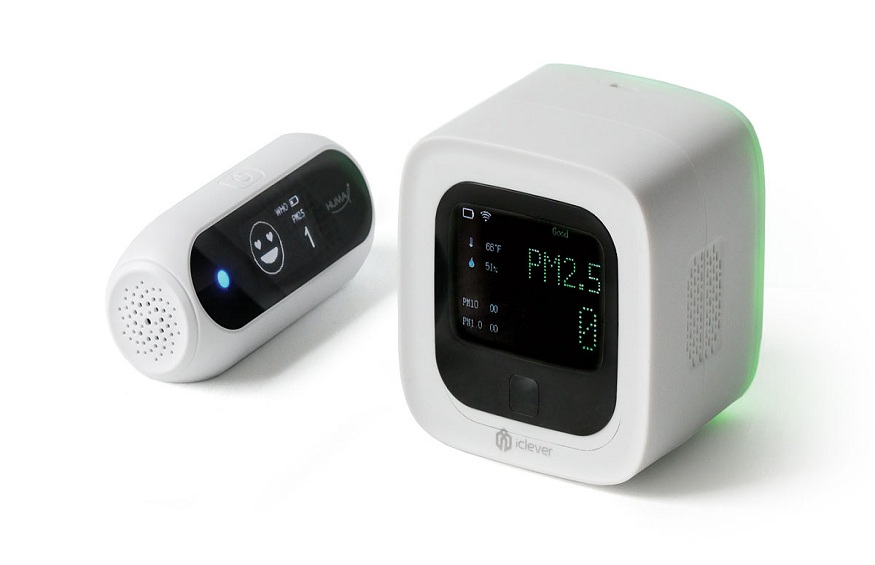Just because breathing doesn’t require any effort to do, it gets taken for granted most times. The respiratory system has its own way of filtering the air that comes in. It starts with the tiny hairs in the nostrils that filter particles when you inhale. Then, there are the cilia, the tiny hair projections in your lungs’ bronchi that keep the airway clear of debris and micro-organisms.
However, the lungs’ natural air filter can only deal with limited kinds of particles and micro-organisms. It definitely has nothing on the extra toxic cigarette smoke and carbon monoxide you inhale every day. So, the first rule to keeping your lungs healthy is prevention.
Don’t smoke and stay away from people when they smoke. But, you should be warned that even when people don’t smoke around you, some toxins stay on their skin and on their clothing. Wear masks when outside. There are apps that issue advisory when the air quality is bad. Do cardio exercises regularly to strengthen your lung’s endurance.
These are some steps you can practice to protect your lungs. But, when it comes to your family’s lung health, it’s gonna require a lot more steps. Ensure the quality of the air in your home by doing the following. Start from the smallest things to the biggest steps.
1. Have indoor plants
This has to be the simplest way you can keep your air quality indoors good. Indoor plants are not only ideal for adding an aesthetic and natural touch to the spaces of your home. They are actually a practical investment. Yes, it’s an investment because most of them require a level of care and attention to stay alive.
Setting aside time each day to water them will be worth the positive effects they bring to your home. Did you know that formaldehyde could be lingering inside your house? Plants like pothos, mass cane, and bamboo palm can help you get rid of toxins such as benzene and formaldehyde.
You can check NASA’s Clean Air Study to find out which other plants remove what toxins.
2. Add some organic and natural stuff to your next grocery schedule
If you are not a fan of essential oils yet, it’s time to add them to your next supermarket run. Burning essential oils can significantly contribute to the air quality in your house. They also help relax and calm you, that’s a bonus.
For removing odor and stench that lingers after a paint job or when something spills, a small chunk of charcoal can do wonders. Use natural cleaning ingredients like lemon, vinegar, and baking soda. Skip the harsh chemicals like bleach.
3. Ensure proper ventilation
Moving over to the big things, proper ventilation is the first thing to look into when air quality is the main concern. Schedule HVAC maintenance checks to make sure that the whole system is working properly. When they do maintenance checks, they include the air filters, the vents, and the units.
When you cook in the kitchen, make sure to always use an exhaust fan. It’s important to keep the heat and the gas particles from circulating further in the kitchen and to other parts of the house. If you don’t have an exhaust fan, open your kitchen window.
In fact, even if you have an exhaust fan, you should call a window installation company and have a window installed near the range in case your exhaust fan doesn’t work. Even when you are not cooking, you can keep the windows open to help the air circulate.
4. Keep moisture in check
You have to watch out for mold growth around the house. Molds produce spores that float in the air until they can find a damp surface where they can grow. They can even settle in your HVAC units.
Molds are hazardous to health especially for people with asthma. They can also cause irritation to the throat, nose, and eyes. To prevent molds, put dehumidifiers in cabinets and near pipes. Use exhaust fans in the bathroom.
4. Invest in these devices
Air purifiers occupy the top spot in the list of devices you should invest in. You can invest in air quality monitors as well for your peace of mind. Some advanced ones have wifi connectivity for ease of access.
There are also air purifiers with a built-in air quality monitor so you get both features. There are more advanced ones that come with HEPA (high-efficiency particulate air) filters.
It is a lot of work to invest in air quality, but treating your lungs well will always be worth it.

